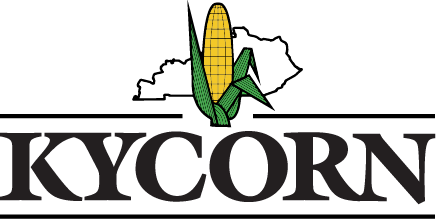National Corn Growers Association President Lynn Chrisp today urged U.S. Department of Agriculture Secretary Sonny Perdue to consider changes to the Market Facilitation Program (MFP) ahead of the second round of payments.
In a letter to Perdue, Chrisp said that he continues to hear from farmers who are disappointed in USDA’s approach to calculating the first round of MFP payments because it was too narrow in scope and did not capture the real-time impacts of trade disruptions on our markets.
Chrisp asked Perdue to add ethanol and distillers dried grains with solubles (DDGS) to the calculation of damages for corn. Using USDA’s methodology, gross trade damages for ethanol and DDGS amounts to $254 million, which was not accounted for in the first MFP payments. Chrisp also asked the Secretary to allow farmers who suffer production losses from disasters to use an alternative to 2018 production for their MFP calculation. This would ensure farmers suffering from drought, hurricane-related losses or other natural disasters would not be penalized twice.
Text of the letter is below, and a PDF is available here.
Dear Secretary Perdue,
On behalf of the more than 40,000 National Corn Growers Association (NCGA) members and the more than 300,000 corn farmers across the nation, I am writing to ask the U.S. Department of Agriculture to consider changes to its Market Facilitation Program (MFP) for the second tranche of payments, planned for December 2018.
During the development of the Department’s trade mitigation plan, NCGA provided USDA and the White House Office of Management and Budget (OMB) with analysis of losses to corn farmers resulting from trade disputes with China and the European Union. This information was based on a study, conducted by Integrated Financial Analytics and Research (IFAR), that found an average decline in the price of corn of $0.44/bu as a result of trade tariffs, amounting to a $6.3 billion loss to corn farmers.
NCGA requested that USDA’s trade mitigation efforts compensate commodities proportionate to their lost revenue and that farmers suffering production losses due to natural disasters be able to use an alternative method of calculating their payments.
At the same time, NCGA called on the Trump Administration to take immediate actions to strengthen market demand for farmers. These included, resolving ongoing trade disputes, securing existing and new trade agreements, and providing parity for ethanol blends above 10 percent.
NCGA is pleased that the Trump Administration has made progress on several of these priorities, including reaching a trade agreement with Mexico and Canada, moving forward with trade negotiations with Japan, and directing EPA to provide RVP parity. We appreciate the strong role you have played in working with the President to deliver on these priorities.
These are critical developments, but the economic benefits will take some time to materialize, and corn farmers are struggling now. I continue to hear from farmers who are disappointed in USDA’s approach to calculating the first round of MFP payments because it was too narrow in scope and did not capture the real-time impacts of trade disruptions on our markets.
Given that there is still significant uncertainty in the farm economy and that corn prices are still being impacted by ongoing disputes with China and the EU, NCGA is asking USDA for the following modifications in its calculation of the second tranche of MFP payments:
1.) Add ethanol and distillers dried grains with solubles (DDGS) to the calculation of damages for corn. U.S. corn farmers have seen value-added corn products grow as an important share of our global exports (see attached graphic). In 2017, according to FAS data, the United States exported $185 million worth of ethanol and $223 million worth of DDGS (for a combined value of $408 million in exports) to China and the European Union. Based on the Office of the Chief Economist’s MFP methodology, gross trade damages for ethanol and DDGS amounts to $254 million that was not accounted for in the first tranche of MFP payments.
2.) Allow farmers who suffer production losses from disasters to use an alternative to 2018 production for their MFP calculations. This programmatic modification would ensure that farmers in Kansas, Missouri and Texas, who are suffering from drought, and farmers in the Southeast, who are suffering losses from Hurricane Michael, would not be penalized twice. It is also important that farmers be allowed to use RMA production records in MFP.
Thank you, Mr. Secretary, and your staff, for continuing this dialogue with NCGA. I know that we share the goal of ensuring that MFP provides farmers with much-needed relief in a way that is equitable and effective. I believe that the modifications I have outlined in this letter will get us closer to that goal and urge you to give this request serious consideration.
Sincerely,
Lynn Chrisp, President
National Corn Growers Association


